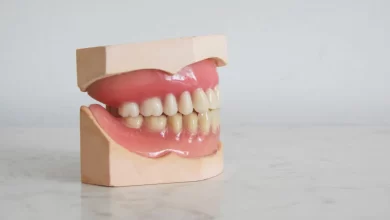We use our mouths and teeth every time we smile, frown, talk or eat. Our mouths and teeth allow us to make various facial expressions, form words, eat, drink, and begin the digestive process. The mouth is required for speech. Teeth, along with the lips and tongue, aid in the formation of words by controlling airflow out of the mouth.
- There are more bacteria in our mouths than the human population of Canada and the United States combined.
- Close to fifty percent of the bacteria in the mouth live on the surface of our tongue.
- There are 20 billion bacteria in your mouth, and they reproduce every five hours. If you go 24 hours without brushing, those 20 billion become 100 billion.
- Our mouth contains around 500 to 1,000 different types of bacteria, which have various functions as part of the human flora and oral microbiology. About 100 to 200 species may live in them at any given time.
- You will probably produce enough saliva during your life that can fill two swimming pools. Our saliva glands produce about 1 liter of saliva per day, which is about 28,600 litters in a lifetime.
- Every day, you produce enough saliva in your mouth to fill five cups.
- An average adult person has about 10,000 taste buds, and they’re replaced every 14 days or so. But as the age of the person increases, some of those taste cells don’t get replaced. An elderly person may have about 5,000 working taste buds. That is why certain foods may taste stronger to us than they do to adults.
- Out of all our five senses, the sense of taste is the weakest.
- If we brush our teeth twice a day for two minutes, it will count as 70 to 80 days (approximately two months) of our lifespan.
- 90% of taste buds are on our tongue, while 10 % are on the insides of our cheeks.
- People who clean their teeth often have 1,000 to 100,000 bacteria living on each tooth, while less clean mouths can have between 100 million to a billion bacteria on each tooth.
- The strongest muscles in our body are the masseters, and it is present on either side of the mouth.
- It takes seven seconds for food to go from the mouth to the stomach via the esophagus.
- People whose mouth has a narrow roof are more likely to snore more. This is because they have less oxygen going through their nose.
- On average, the cough comes out of our mouth at 60 meters per hour.
- A sneeze moves out of our mouth at a speed of 100 meters per hour.
- Kissing can aid in reducing tooth decay. This is because the extra saliva helps in keeping the mouth clean.
- Only humans are known to express the emotion of astonishment with their mouths agape.
- Taste buds contain chemoreceptors that respond to chemicals from food and other substances that are dissolved by the saliva in the mouth.
- The smile on our faces is as unique as our fingerprints.
- Our tongue is the only muscle in our whole body that is connected from one end.
- The people who are right-handed tend to chew food from their right side of their mouth. Whereas left-handed people tend to eat from their left side.






